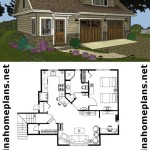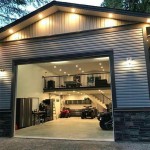Standard Sizes for Residential Garage Doors in NJ
Garage doors are a vital component of any New Jersey home, providing security, protection from the elements, and enhancing curb appeal. When considering a new garage door or replacement, understanding standard sizes is essential for a seamless installation and optimal functionality. This article delves into the common dimensions of residential garage doors in New Jersey, factors influencing size selection, and considerations for customized options.
Understanding Standard Garage Door Widths
The width of a garage door is a primary factor in determining its suitability for a particular residence. Standard widths are designed to accommodate various vehicle sizes and accommodate common garage configurations. In New Jersey, the most frequently encountered standard widths for residential garage doors are 8 feet, 9 feet, 10 feet, 16 feet, and 18 feet. These dimensions reflect the needs of single-car and double-car garages, respectively.
An 8-foot wide garage door is typically used for single-car garages where space is limited. This width is sufficient for parking a compact car but may prove challenging for larger vehicles or maneuvering in and out of the garage. Moving up to a 9-foot wide door provides a more comfortable clearance for most standard-sized vehicles, making it a popular choice for single-car garages.
For homeowners with two vehicles, a 16-foot wide garage door is a common selection. This provides ample space for parking two cars side-by-side, although precise positioning may still be required to avoid door dings. An 18-foot wide door offers even greater space and ease of use for double-car garages, particularly for larger vehicles like SUVs or trucks.
It is important to note that these are just standard widths. Some homes may have garage door openings that deviate from these measurements. In such cases, customized garage doors may be necessary to ensure a proper fit. Measuring the garage door opening precisely is crucial before making any purchasing decisions. Factors to consider during measurement include the width between the jambs, the headroom (the distance between the top of the opening and the ceiling), and the sideroom (the space available on either side of the opening).
Exploring Standard Garage Door Heights
In addition to width, the height of a garage door is a critical dimension to consider. Standard garage door heights are typically 7 feet and 8 feet. The choice between these heights depends mainly on the type of vehicles being parked in the garage and the headroom available within the garage structure.
A 7-foot high garage door is the most common standard height for residential garages in New Jersey. This height is suitable for most standard passenger vehicles, including sedans, coupes, and smaller SUVs. However, taller vehicles, such as large trucks or vans, may require a taller garage door.
An 8-foot high garage door provides an extra foot of vertical clearance, making it a better choice for homeowners with taller vehicles or those who anticipate needing the extra space in the future. The additional height also facilitates the installation of overhead storage systems without compromising the ability to park vehicles comfortably.
When determining the appropriate garage door height, it's essential to measure the tallest vehicle that will be parked in the garage, allowing for sufficient clearance above the vehicle's roof. Moreover, the available headroom within the garage structure must be considered. If the headroom is limited, it may not be possible to install a standard 8-foot high door, even if it is otherwise desirable. Special garage door tracks and lifting mechanisms may be required in such cases to accommodate the limited headroom.
Furthermore, the height of the garage door can impact the overall appearance of the home. A taller garage door can create a grander, more impressive facade, while a shorter door may blend more seamlessly with the existing architecture. Considering the aesthetic impact of the garage door height is an important part of the selection process.
Factors Influencing Garage Door Size Selection
Choosing the correct garage door size involves more than just matching the existing opening. Several factors contribute to the decision-making process, ensuring that the selected door meets the homeowner's specific needs and preferences. These factors encompass vehicle size, garage usage, architectural style, and local building codes.
The size and type of vehicles that will be parked in the garage are primary determinants of the required garage door size. As discussed earlier, taller vehicles necessitate taller garage doors. Similarly, wider vehicles require wider doors to facilitate comfortable entry and exit. It is crucial to consider the dimensions of all vehicles that will regularly use the garage, as well as any potential future vehicle purchases.
The intended use of the garage also plays a vital role in size selection. If the garage is primarily used for vehicle storage, the focus will be on accommodating the vehicles comfortably. However, if the garage is also used for other purposes, such as a workshop, storage area, or recreation space, additional clearance may be needed. For example, homeowners who plan to install a workbench or storage shelves along the walls of the garage may need to opt for a wider or taller door to avoid obstructing access to these areas.
The architectural style of the home is another important consideration. The garage door should complement the overall design of the house and enhance its curb appeal. The size, style, and materials of the garage door should be carefully chosen to create a cohesive and aesthetically pleasing look. In some cases, custom garage doors may be necessary to achieve the desired aesthetic effect.
Finally, local building codes and regulations must be taken into account. These codes may specify minimum or maximum dimensions for garage doors, as well as other requirements related to safety and functionality. It is essential to consult with local building authorities or a qualified garage door installer to ensure that the selected garage door complies with all applicable regulations.
Custom Garage Door Options in New Jersey
While standard garage door sizes cater to a wide range of residential needs, some homeowners may require customized solutions to accommodate unique circumstances. Custom garage doors offer greater flexibility in terms of size, design, and materials, allowing homeowners to create a truly personalized garage door that perfectly complements their home and lifestyle.
Custom garage doors can be manufactured to virtually any size, accommodating unusual garage door openings or specific architectural requirements. This is particularly beneficial for older homes with non-standard garage door sizes or for homeowners who are undertaking renovations or additions that require a custom-sized garage door.
In addition to size, custom garage doors offer a wide range of design options. Homeowners can choose from various materials, including wood, steel, aluminum, and fiberglass, as well as a variety of styles, colors, and finishes. Custom garage doors can also be designed with unique features, such as windows, decorative hardware, and insulation options.
The process of ordering a custom garage door typically involves working closely with a garage door manufacturer or installer. The homeowner will provide detailed specifications for the desired size, design, and materials, and the manufacturer will create a custom door that meets those specifications. It is important to note that custom garage doors typically have a longer lead time and a higher cost than standard doors, but the added flexibility and personalization can be well worth the investment for homeowners with specific needs or a desire for a unique aesthetic.
When considering a custom garage door, it is essential to work with a reputable and experienced manufacturer or installer. This will ensure that the custom door is properly designed, manufactured, and installed, guaranteeing its long-term performance and reliability. Additionally, a qualified professional can provide valuable guidance and advice on design options, materials, and other considerations.
In conclusion, understanding standard garage door sizes is crucial for ensuring a successful installation and optimal functionality. While standard sizes cater to most residential needs, custom options offer greater flexibility for homeowners with unique requirements. By considering factors such as vehicle size, garage usage, architectural style, and local building codes, homeowners in New Jersey can select the perfect garage door for their home.

What Are The Average Garage Door Sizes Blog

Most Common Residential Garage Door Sizes

Most Common Residential Garage Door Sizes

What Size Overhead Sectional Garage Door Should I Buy Armrlite Doors

Most Common Residential Garage Door Sizes

Traditional Residential Garage Doors In Central Jersey

Traditional Residential Garage Doors In Central Jersey

Traditional Residential Garage Doors In Central Jersey

What Size Overhead Sectional Garage Door Should I Buy Armrlite Doors

What Is A Common 2 Car Garage Size
Related Posts








